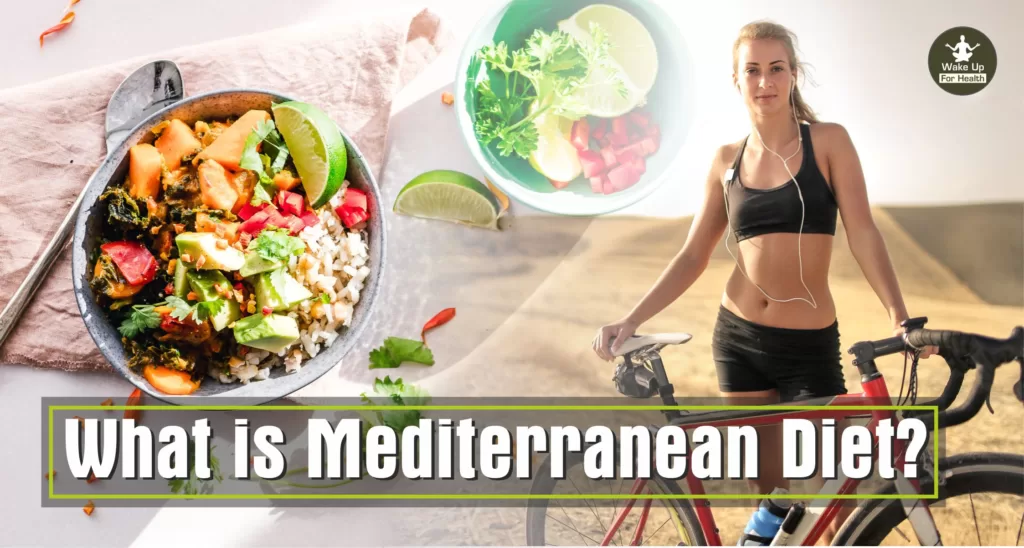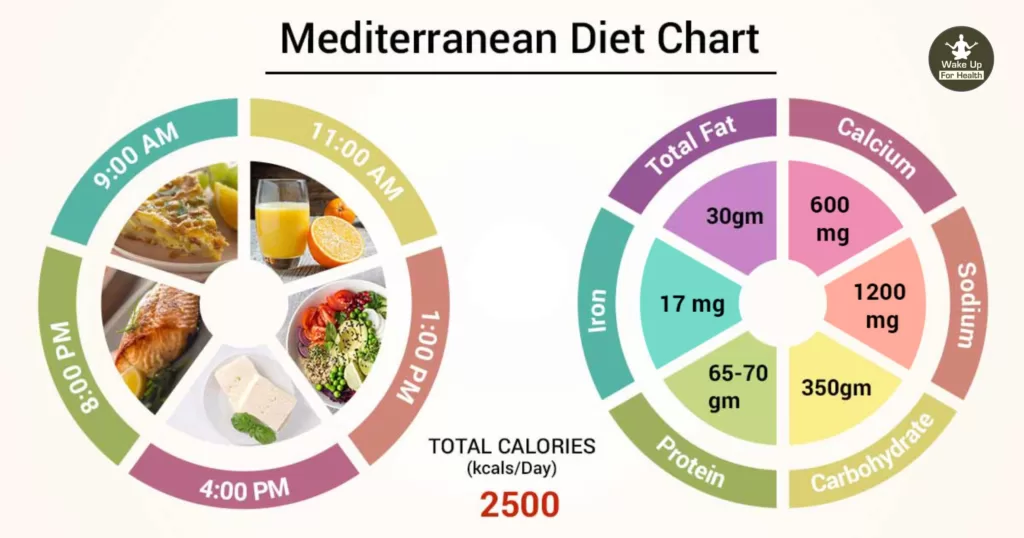The brain of those who take Mediterranean diet remains more young than others. But this effect can happen only when only this diet is used. Along with this, eating western food can have a negative effect on you.

Mediterranean diet is very beneficial in keeping the brain young. In a research, scientists have revealed the positive effects of the Mediterranean diet on the brain. Along with this, he also says that one should avoid including western food with it because after that it can have a negative effect.
What is Mediterranean Diet?, Mediterranean Diet for Brain Health
Plant based diet is called Mediterranean diet. It includes all kinds of vegetables, fruits and grains. This diet is made better with nuts and seeds. People who follow this cook their food only in olive oil.
Diet Benefits, Understanding Side Effects
Scientists at Chicago’s Rush University Medical Center have explained the surprising benefits of the Mediterranean diet. Scientists tell that the brain of people who take Mediterranean diet remains more young than others. But this effect can happen only when only this diet is used. In this diet, avocado, eggs, fresh fruits, flax seeds, etc. should be taken for breakfast. Mediterranean diet makes the brain young.

According to this research, the inclusion of Western diet foods such as pizza, processed meat and sweets can have a negative effect on the Mediterranean diet, that is, brain-related problems begin. Let us tell you that in earlier research, the use of Mediterranean diet has been said to be helpful for reducing weight and keeping the mind sharp. Now new research says that this diet slows down the growth of brain age.
Know the advantages and disadvantages of plant-based diet here. Most people follow a healthy diet to stay fit. Every diet is planned keeping in mind the capacity and needs of the individual. Although there are many diet plans available for weight loss and staying fit, plant-based Mediterranean diet is the most effective diet that can give attractive results.
This diet has also got the title of the best diet in the world. Plant-based Mediterranean diet is a plant-based diet that can be followed by vegan diet followers as well as normal dieters. There is no particular pattern of this diet, only the emphasis is on the consumption of green vegetables and grains. Like every diet, Mediterranean diet has advantages and disadvantages which is very important to know. Let’s know about it.
What is Plant Based Diet?
The Mediterranean diet is a plant-based diet rich in lean meats such as chicken, fish, fruits, vegetables, whole grains, nuts, legumes, and healthy fats. According to Banner Health.com, all plant-based foods are included in the Mediterranean diet. However, red meat, sugar, refined carbs and processed food are avoided in this diet. In this diet, instead of salt, herbs and spices can be used to enhance the taste. Low fat dairy products and red wine are also included in this.
Benefits of Plant Based Diet.
1. Beneficial in Heart Disease and Stroke
According to the American Heart Association, following a Mediterranean diet reduces the risk of heart disease and stroke. Being plant based, the body gets all the important nutrients which can help in making the heart healthy.
2. Diabetes Remains Under Control
Following a Mediterranean diet can help in controlling diabetes. Diet supplements, olive oil and healthy nuts are used in Mediterranean diet which are beneficial for diabetes. It also reduces the risk of type-2 diabetes.
Must Read : Control your Diabetes at home.
3. Beneficial in Brain Health
It can help in improving brain health. By taking this diet, cognitive decline and Alzheimer’s patients can get relief.
4. Helpful in Reducing Weight
This diet does not contain food items that reduce weight, but by following a balanced lifestyle, weight can be reduced. With its use, the difference in size will be visible in a few days.
Disadvantages of the Plant Based Mediterranean Diet.
1. Risk of Cancer
Red wine has been included in the plant-based Mediterranean diet, which can increase the risk of cancer if consumed in excess.
2. Weak Digestive System
Taking this diet can cause digestive system week. The problem of constipation can increase due to taking less amount of carb.
3. May Increase Weight
High calorie nuts and oil are included in the Mediterranean diet. Its excessive consumption increases the risk of weight gain.
Consume these food Items in Limit.
1. Sugar-Rich: Soda, candy, ice cream, table sugar.
2. Processed Grains: white bread, pasta with refined wheat, etc.
3. Trans Fat: found in margarine and various processed foods
4. Processed Oils: Soybean oil, canola oil, cottonseed oil and others.
5. Processed meat.
6. Highly Processed Foods: Everything labeled ‘low fat’ or ‘diet’ .
What should we do while Having Mediterranean Diet
- Eat: Vegetables, fruits, nuts, seeds, legumes, potatoes, whole grains,
- Bread, herbs, spices, fish, seafood and extra virgin olive oil.
- Eat in moderation: Poultry, eggs, paneer and curd.
- Have a glass of red wine with dinner.
What not to do while Having Mediterranean Diet
- Red meat.
- Sugary drinks, sugar, processed meat, refined grains, refined . Oil and other highly processed foods.
Food items that you can Easily Consume.
1. Vegetables
Tomato, Broccoli, Spinach, Onion, Cauliflower, Carrot, Sprouts, Cucumber, etc.
2. Fruits
Apple, Banana, Orange, Grapes etc.
3. Nuts and Seeds
Almonds, Walnuts, Cashews, Sunflower Seeds, Pumpkin Seeds and many more.
4. Legumes
Beans, peas, lentils, pulses, peanuts, chickpeas, etc.
5. Whole Grains
Whole oats, brown rice, rye, corn, whole wheat, whole grain breads and pasta.
6. Dairy
Paneer, Curd etc.
F.A.Q.
Q.1 : What is not allowed on Mediterranean diet?
Ans: The Mediterranean diet is high in plant-based foods such as vegetables, fruits, whole grains, beans, nuts, seeds, and olive oil. Foods not allowed include processed red meats, heavily processed foods, refined grains, alcohol, butter, and refined/processed/hydrogenated oils.
Q.2 : What is a typical Mediterranean breakfast?
Ans: As popular in Spain and Italy: toasted bread + soft cheese + fresh fruit or freshly squeezed fruit juice. Greece: paximadia (bread made from whole wheat, chickpea, and barley flour) + olives + cheese. Syria: tahini yogurt with chickpeas + pickles + sliced radishes. Morocco: fried egg in olive oil + soft cheese + olives + flatbread.
Q.3 : What is a typical Mediterranean lunch?
Ans : The Mediterranean diet focuses on fresh vegetables, whole grains, olive oil, fish, beans, and eggs. A chicken wrap with apples and nuts is a filling Mediterranean-inspired lunch. Almond-stuffed dates are a sweet and crunchy way to get protein and fiber.
(Disclaimer : The purpose of this health-related article is to wake you up and aware of your health and to provide health-related information. Your doctor has a better understanding of your health and there is no substitute for their advice.)
4 thoughts on “Mediterranean Diet : Keep Brain Young | Benefits and Side Effects”